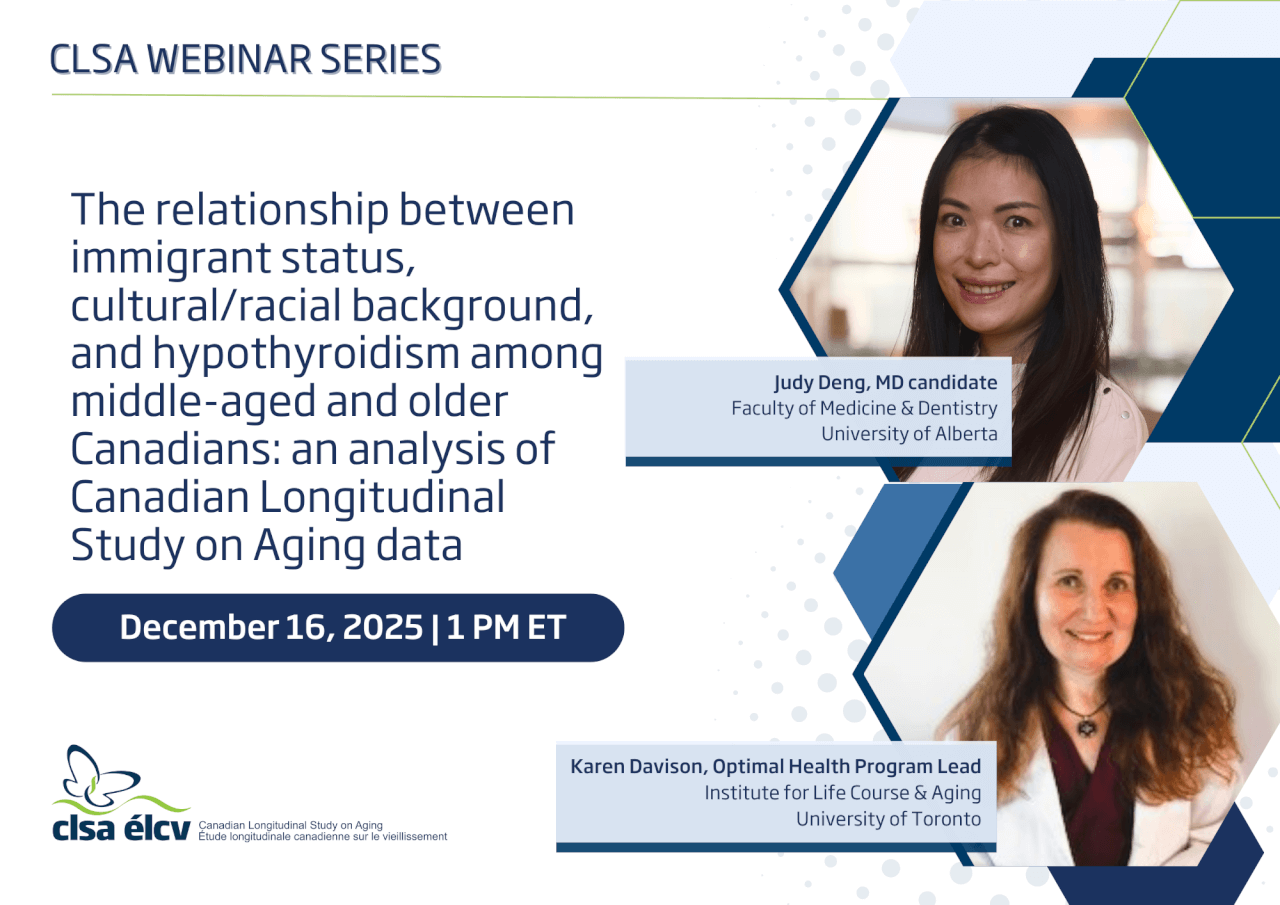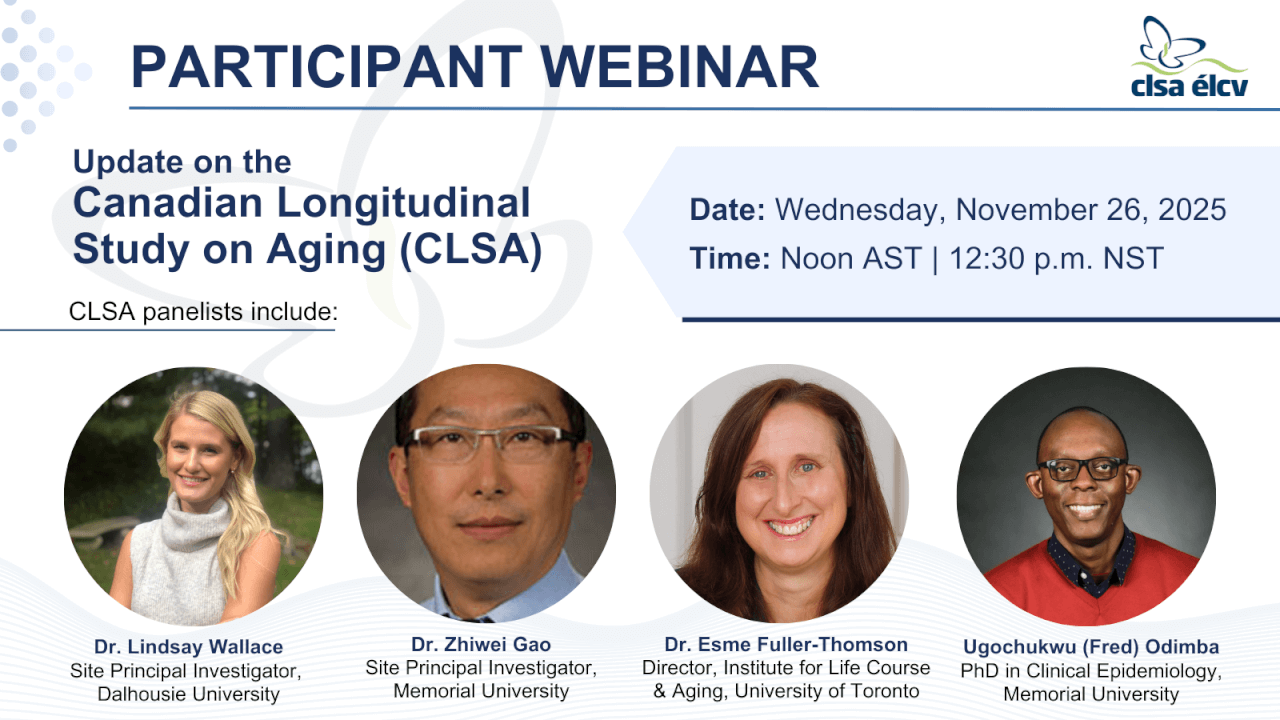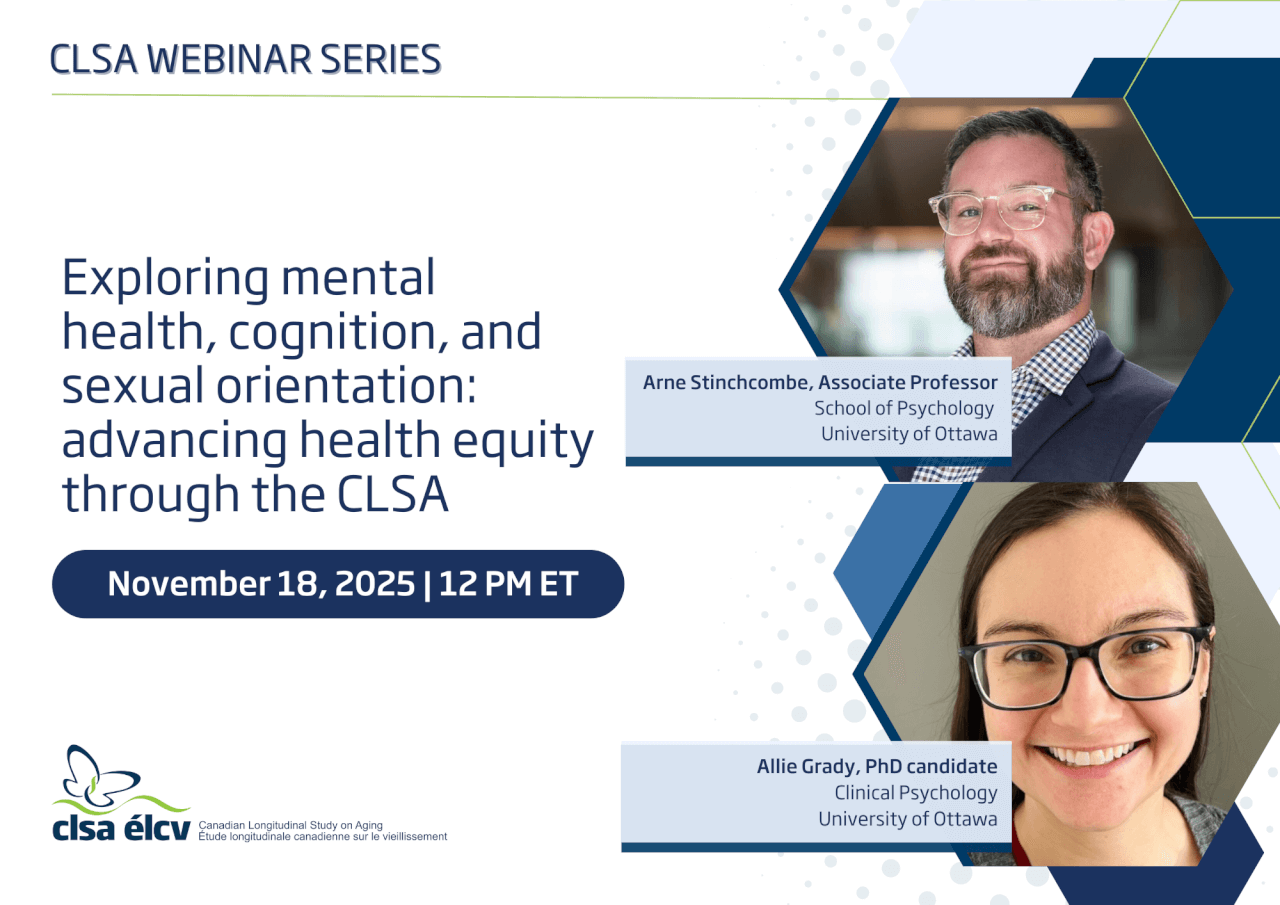December 5, 2025
Recent News
Keep up to date with the accomplishments of the CLSA, and learn about upcoming webinars or public events.
December 5, 2025
The overlooked link between hormones and the female brain
December 2, 2025
Participant Spotlight: Allan
November 21, 2025
Trainee Spotlight: Q&A with Allie Grady
November 20, 2025
In plain sight: What the eyes reveal about aging and cardiovascular risk
November 11, 2025
CLSA research on health and aging of Veterans
September 30, 2025
The science of aging: What 50,000 Canadians are teaching us
Recent Webinars
The CLSA webinar series features online presentations from researchers who are studying various aspects of the aging process. The CLSA webinars provide a forum to discuss the latest health and aging research in Canada, with an opportunity for audience questions at the end of the talk.













